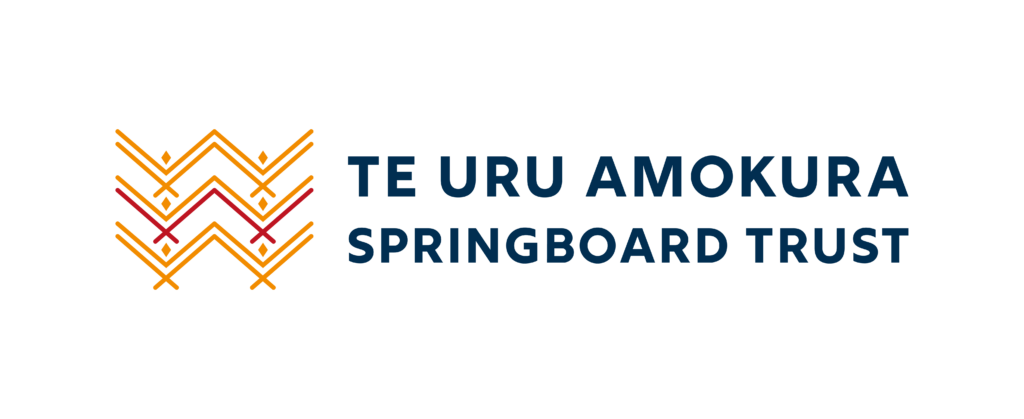Te Uru Amokura | Springboard Trust brings together leaders from across Aotearoa to strengthen leadership so our tamariki mokopuna thrive.
‘Mā te māhī, ka ngā wāhi e noho’ – through knowledge, new spaces are explored
We are proud to share our Leading with AI webinar featuring Lysandra Stuart, Principal, Glenbrook School and Martyn Bowis, Design Lead at IAG, Innovation facilitator, and Capacity Partner for Te Uru Amokura | Springboard Trust.
“What would you do if you had an assistant for every single teacher? That’s what AI can do. It’s not about replacing teachers—it’s about releasing them to teach, to lead, to be creative, to have fun. AI helps us get back to the core.”
Lysandra Stuart
Key messages from Lysandra
- AI is a time-saving assistant, not a threat: AI is a supportive tool that reduces administrative burden, allowing teachers to focus on what matters most—teaching, creativity, and student connection.
- Leadership with AI must be strategic, equitable and brave: Lysandra urges school leaders to lean/lead into AI with courage and clarity, ensuring its use is equitable across staff, aligned with school values, and focused on reducing workload, not adding more.
- A culture of trust and experimentation is essential: as leaders we must champion a growth mindset in schools—encouraging experimentation, reducing fear of failure, and building a culture where teachers feel safe to try, fail, and learn with AI.
AI must be used to reclaim time, not add more work: the core leadership responsibility is to use AI to reduce burnout and reinvest time into meaningful, human-centered work—like mentoring, creativity, and student connection.
Read now!
AI in Education presentation slides from Lysandra
Key messages from Martyn
“From a leadership perspective, always be thinking: how am I going to collaborate with AI in a way that enables me to be more human? Because that’s the only thing AI can’t be—more human.”
Martyn Bowis
1. Collaborate with AI to be more human: AI should not replace human leadership but enhance it, allowing leaders to focus on empathy, creativity, and connection.
2. Let AI be a servant of equity, wisdom, and connection: Martyn cautions us against using AI solely for productivity. Instead, he advocates for using AI to amplify values, support inclusion, and foster meaningful relationships in education.
3. Empower educators and students to prototype and create: Martyn encourages a hands-on, creative approach to AI, where both teachers and students co-create tools and solutions, fostering innovation and ownership in learning.
Leadership in the AI era is about influence, not expertise: influence, humility, and co-learning are the new pillars of leadership. Leaders don’t need to be AI experts—they need to model curiosity, collaboration, and courage.
There were some questions we were not able to cover live in the webinar – please find here the questions we missed with answers from Lysandra and Martyn









